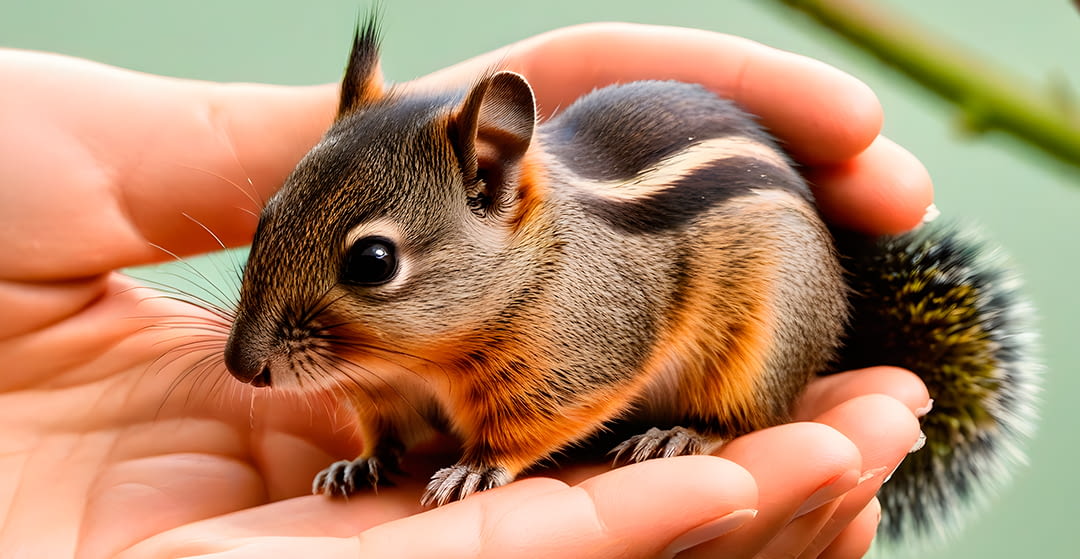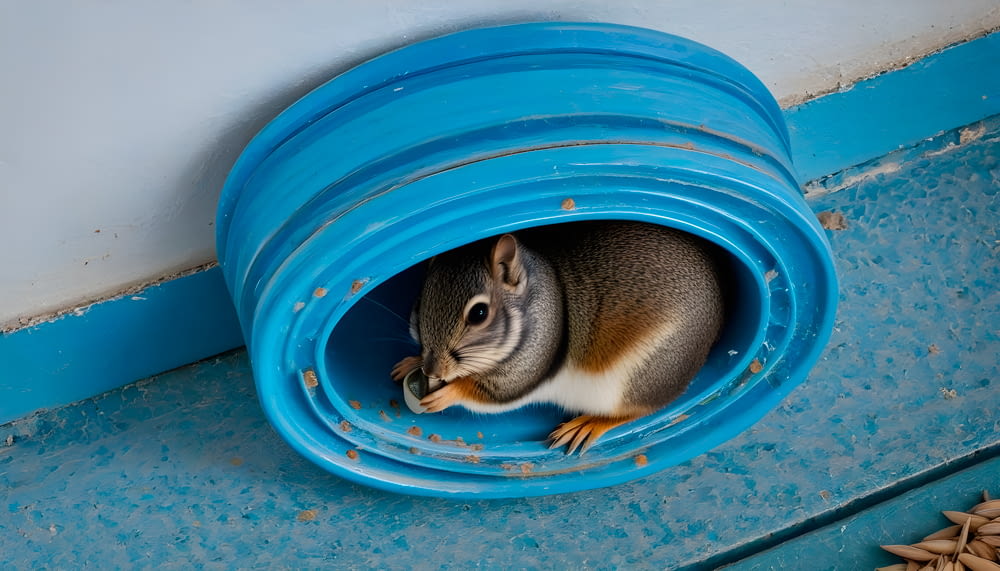
Exotic animals fascinate us, especially those that look like stuffed animals, right? This is why many people decide to have a pet squirrel, but, and even more so after the new Animal Welfare Law, is it possible to adopt one of these animals in Spain?
IS IT ALLOWED TO HAVE A SQUIRREL AS A PET?
No type of squirrel appears in the Spanish Catalog of Invasive Exotic Species. However, in Spain it is illegal to have wild animals as pets, that is, it is prohibited to take home a squirrel that we find in the wild.
On the other hand, in the CITES appendices (Convention on International Trade in Endangered Species of Wild Fauna and Flora)only the Mexican prairie dogs appear in the squirrel family (in danger of extinction and with very restricted trade); the Himalayan marmot and the caudata marmot (with special protection in India); and all subspecies of the genus Ratufa (giant squirrels).
Therefore, it is worth asking whether the sale of squirrels is legal in Spain. Well, unless other specific regulations expressly prohibit it, such as the aforementioned new Spanish Animal Welfare Law, in which the Scientific and Technical Committee for the Protection and Rights of Animals is preparing the definitive list of which pets will be permitted. and which is expected to be developed within a maximum period of between three and four years, today it is possible to have certain species of squirrel as pets as long as they are adopted in legal exotic animal breeding centers that have health certificates and the appropriate official documents. We can also find squirrels for adoption in rescue and shelter centers.
SQUIRREL CARE
Although the possibility of having a squirrel as a pet exists, the adoption of wild animals is discouraged due to their need to develop their natural instincts in the wild. Captivity can cause stress and depression in species such as the flying squirrel, so it is suggested to avoid having them as pets.
Known for their friendliness and beauty, squirrels are extremely active, constantly moving and jumping from one place to another. If you decide to adopt a squirrel as a companion, it is essential to take certain aspects into account:
· The cage must be large, with minimum dimensions of 100 x 120 centimeters, and include branches and accessories that allow the squirrel to jump and climb.
· Avoid placing the cage near drafts or exposing it to direct light.
· Provide a nest inside the cage so the squirrel can take shelter and rest at night.
· If they are allowed to wander around the house, it is necessary to monitor them to avoid possible injuries, since they will explore every corner and jump on various places.
· The squirrel is likely to mark its territory with urine.
· It is not advisable to adopt squirrels under two months of age.
· The diet should include specialized food available in pet supply stores, as well as occasionally vegetables, fruits, nuts, mushrooms, crickets or eggs.
· It is crucial to take the squirrel to a veterinary clinic specializing in exotic animals for vaccination and to ensure that it is in optimal health.

LIVING WITH SQUIRRELS
Since they are social animals, human companionship and constant attention must be provided, and although they can live alone, they will enjoy having a cage mate. Two squirrels of the same sex will get along well if they live together from a young age, but not if you try to bring them together once they are adults.
In the case of animals of different sexes, it must be monitored that they get along well throughout the year. If the male is in heat and the female does not receive him well, it will be better to separate them for a few days. It is important to give them places to hide from each other if they prefer.
Once the squirrel has arrived home, you must be patient and “conquer” it by offering it sunflower seeds or peanuts, first through the bars and then inserting your hand into the cage until it agrees to climb onto the palm.
When you first take her out of the cage it is important to secure the room by closing all the doors and blocking any gaps where she can hide. Over time it will be tamed and it will be possible to take it out with less care.
VETERINARY CARE
Wild squirrels can carry infectious diseases, which, as we have mentioned, highlights the importance of adopting specimens raised in specialized centers that carry out exhaustive health checks on the animals.
Once the new pet has been welcomed, it is essential to schedule a consultation with the veterinarian to carry out a comprehensive check-up and establish an appropriate vaccination schedule.
Among the most common health problems in squirrels are:
· Injuries: Given their active nature, squirrels can suffer injuries from running around the house and jumping on furniture. It is also necessary to prevent them from chewing on cables.
· Parasites: Squirrels may be prone to mange, ticks, or flea infestations.
· Pneumonia: Excessively humid environments and lack of hygiene can lead to the development of pneumonia in squirrels. Furthermore, these small animals are quite sensitive to human viruses.
· Fractures: Given their agility, pets could fall from considerable heights and suffer fractures. Therefore, it is crucial to keep an eye on them when they are out of their cage.
· Malocclusion: This problem involves excessive growth of the teeth, which can affect the squirrel's oral health.
· Enteritis: Intestinal disease of bacterial origin that can affect squirrels.
Maintaining constant attention to the health of squirrels and acting preventively against possible risks will significantly contribute to ensuring the well-being and happiness of these charming pets.



